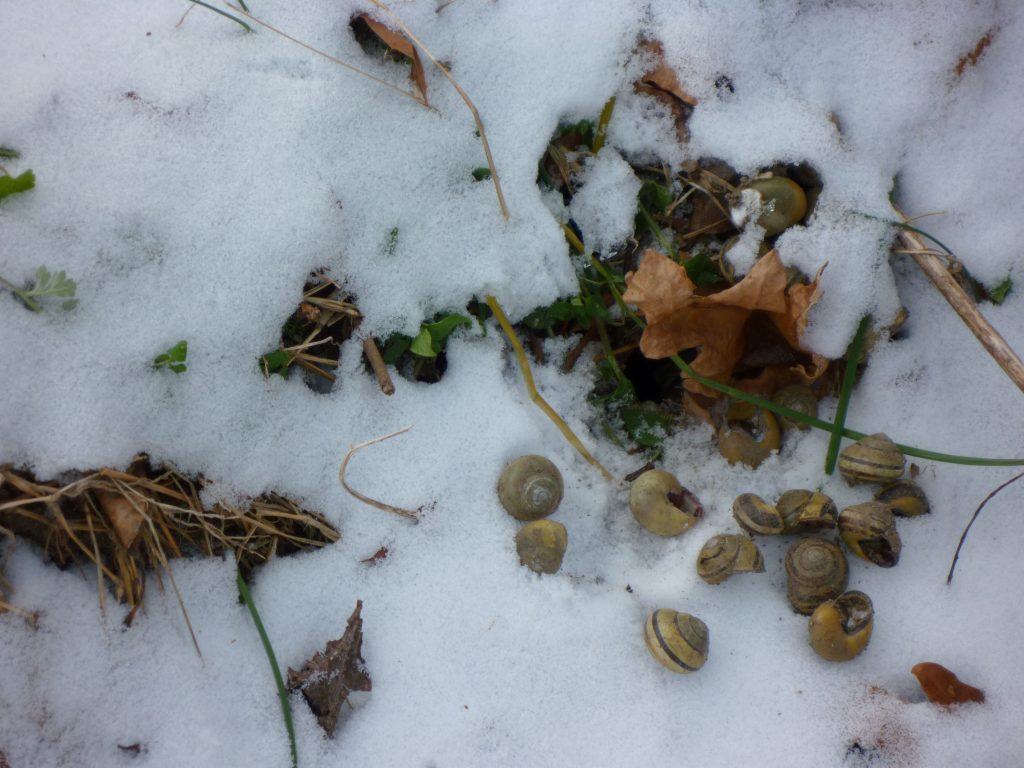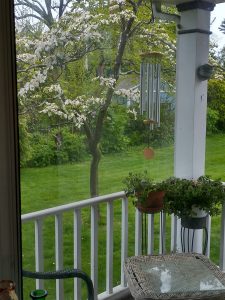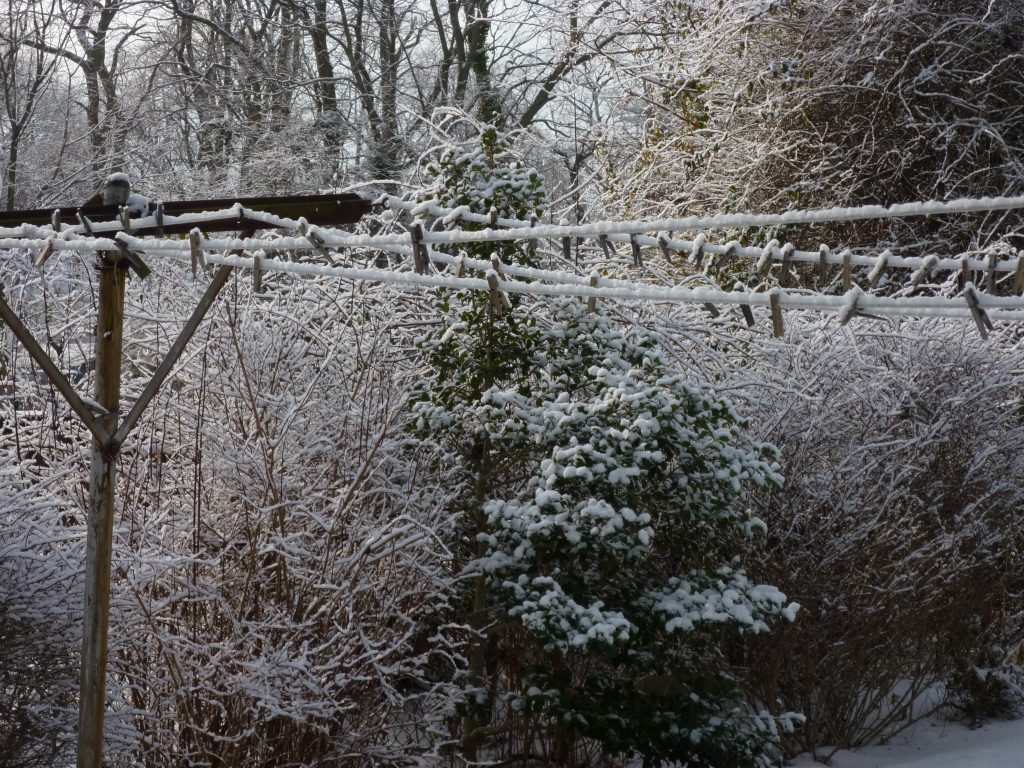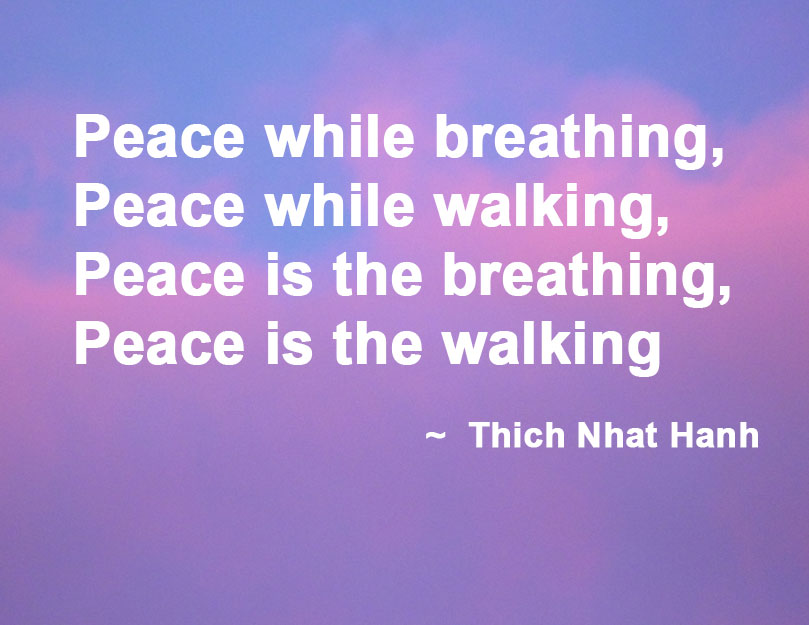Posted on December 14, 2022
The best season of your life
“Ten thousand flowers in spring, the moon in autumn, a cool breeze in summer, snow in winter.
If your mind isn’t crowded with unnecessary things, this is the best season of your life.” ? Wu-Men

Snow in winter
Posted on June 1, 2022
How do you interpret reality?
Someone posed a question on a Facebook page I belong to: “How do you interpret reality?”

My Answer:
Our model for measuring a year is 365 days, fairly accurate, but we add a day every 4 years to keep it so. It is my best example of how our brains attempt to explain our reality. You could devise an interpretation of reality, but considering how the human brain works, you might have to add an extra explanation every four years
See: In Zen we lose the question
Posted on February 9, 2022
Drama at the Clothesline

Have not been hanging out my clothes, for obvious reasons
Yesterday was the first time in a couple of weeks that I could hang my clothes out on the clothesline. Other than cleaning the lint filter, nothing much takes places when I take wet clothes out of my washing machine and put them in the dryer. Ah, but at the clothes line there was drama!
So yesterday the dog and I traipse out into the yard, and I start hanging up my stuff. The line being about seven feet off the ground, forces me to look up when pinning my laundry. I hear this seagull squawking and when I look up a little higher, I see the gull swooping in on a red-tailed hawk. The hawk seemed oblivious to the marauding seagull. He just kept gliding in circles, riding the air currents. I could imagine the hawk mumbling under his breath, “You know I could eat you if I wanted to.”
Chop wood
Carry water
Hang out your clothes
Posted on February 1, 2022
A ray of sunshine

While I was standing at the sink this morning, a ray of sunshine popped through the window, lighting up a spot on my shirt. I noticed it, and that made me very happy.
Posted on January 22, 2022
On the Passing of Thich Nhat Hanh
 I read today of the passing of Thich Nhat Hanh. His obituary in the New York Times serves as a biography. Below are some of his quotes from my collection of what I consider relevant Zen concepts:
I read today of the passing of Thich Nhat Hanh. His obituary in the New York Times serves as a biography. Below are some of his quotes from my collection of what I consider relevant Zen concepts:
“The moment of awakening may be marked by an outburst of laughter, but this is not the laughter of someone who has won the lottery or some kind of victory. It is the laughter of one who, after searching for something for a long time, suddenly finds it in the pocket of his coat.”
“If while washing dishes, we think only of the cup of tea that awaits us, thus hurrying to get the dishes out of the way as if they were a nuisance, then we are not “washing the dishes to wash the dishes.” What’s more, we are not alive during the time we are washing the dishes. In fact we are completely incapable of realizing the miracle of life while standing at the sink. If we can’t wash the dishes, the chances are we won’t be able to drink our tea either. While drinking the cup of tea, we will only be thinking of other things, barely aware of the cup in our hands. Thus we are sucked away into the future—and we are incapable of actually living one minute of life.” ~ Thich Nhat Hanh, The Miracle of Mindfulness: An Introduction to the Practice of Meditation
“In order to see nature, like a flower is made of non-flower elements, you see the characteristics of paratantra, paratantra is the Sanskrit word for interdependence. When you look at the flower, you see all the elements which are not the flower, like the sun, the cloud, the farmer, time, space, the love of the farmer, etc. And then you see that in order to look deeper, you have to see the interconnection, the interdependence, the interpenetration of the nature of things as they are. The more you see the true nature of paratantra, which means interpenetration, the more your ignorance, the more your discrimination, will disappear. Your discrimination between the right hand and the left hand, the right arm and the left arm, the right arm and the legs will disappear. (Thay in English:) “When you begin to discover the nature of interconnection, of interbeing, of the object of your perception, its nature of discrimination begins to withdraw, to fade away, and it‘s nature of perfection will start to appear. So the true nature of the ‘reality as it is’ will slowly appear.” ~ Dharma Talk given by Thich Nhat Hanh on December 14, 1997 in Plum Village, France.
“According to the Lotus Sutra, everyone is a Buddha to be, and the Buddha is available within, you can touch anytime. A Buddha is not limited in time and in space. You don’t have to go anywhere to touch a Buddha. You just stay where you are, and the Buddha is available. The Buddha does not have to undergo birth and death. The Buddha is always alive, the living Buddha within.”
“When you learn how to suffer, you suffer much less” – “Meditation is not an escape. It is the courage to look at reality with mindfulness.”
“If I could not be peaceful in the midst of danger, then the kind of peace I might have in simpler times is meaningless. If I could not find peace in the midst of difficulty, I knew I would never know real peace.”
“It is not impermanence that makes us suffer. What makes us suffer is wanting things to be permanent when they are not.”
Separate from the biography, I hope this serves to paint a better picture of who Thich Nhat Hanh was.

 Follow
Follow